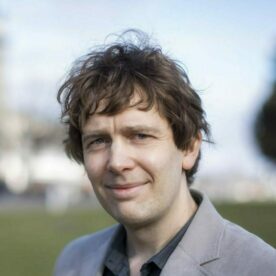Company
CEO and Co-founder, Danielle Bower
What was the motivation for QuadraticMed?
Quite simply, we are undergoing a data explosion in medicine and life sciences, and these data hold the key to improving societal and individual healthcare outcomes, as well as driving healthcare towards a sustainable financial future. QuadraticMed was founded to unlock the knowledge contained within the diverse and multifaceted datasets typical of biomedicine. QuadraticMed focuses on every aspect of the data journey, from data generation and acquisition through to the effective utilisation of data by various end-users.
What are the challenges with medical data?
At present, there is a large effort to digitise and standardise medical data and consolidate them into storage systems. However, there still remains a huge challenge for these data to be used effectively by end-users such as medical professionals and data specialists. Despite the proliferation of big data analytics and artificial intelligence, no tool by itself can substitute for domain expertise, particularly with regard to data cleaning and curation.

“We founded QuadraticMed to accelerate the digital data transformation in medicine and biotechnology and crucially to ensure that end-users can extract the knowledge they crave from data.”
Dr. Dr. med Danielle Bower, CEO and Co-founder, QuadraticMed
Which experiences shaped your vision for QuadraticMed?
From over more than two decades of experience in medicine (MD, Dr. med) and biochemistry (PhD), I know that the challenges of storing, processing, and interpreting medical and biological data extend beyond the expertise offered by any single discipline. The ethos of QuadraticMed is therefore to bridge the divide between research, medicine, and data science to accelerate the use of data for commercial and clinical applications. This enables our clients to extract maximum knowledge gain from their data according to their objectives.
CTO and Co-founder, Dan Bower
What is your background?
I am a computational physicist by training, with over 20 years experience synthesising and analysing large datasets and modelling complex physical phenomena, often using high performance computing. I’m attracted to questions and challenges that necessitate a diverse and multidisciplinary team to work together, often to uncover knowledge that is hidden in large and complex data. As a scientist, I’ve always been curious about a range of research topics. I now leverage this curiosity to bring together methods and tools from seemingly disparate fields to confront the big challenges that we face with real-world data.
How can a physicist help to understand medical data?
Broadly, a physicist has a tendency to levitate towards theories and solutions that apply generally, which is beneficial when devising workflows to interrogate data. I come equipped with a high mathematical proficiency and have a good instinct for how to modularise a complex system into its component parts. Finally, strong programming skills are instrumental to convert conceptually-defined data processing pipelines into robust and scalable solutions. But all of this, of course, can only be realised through close interaction with other expertise, not least medicine.
“Data may be able to answer some questions, partially answer others, and not answer some questions at all. Therefore, data does not absolve your responsibility to form well-posed questions, in fact they accentuate your responsibility.”
Dr. Dan Bower, CTO and Co-founder, QuadraticMed

What excites you in the future regarding medical data?
Well, the future has already arrived in terms of the proliferation of artificial intelligence (AI) and machine learning that is providing unprecedented power to interrogate and utilise data. But I’m equally as excited by the fact that health care data touches on so many different aspects of health care, technology, public policy, and economics. Only by bringing together and engaging broad and diverse teams will we be able to realise the potential of medical data for the benefit of all.